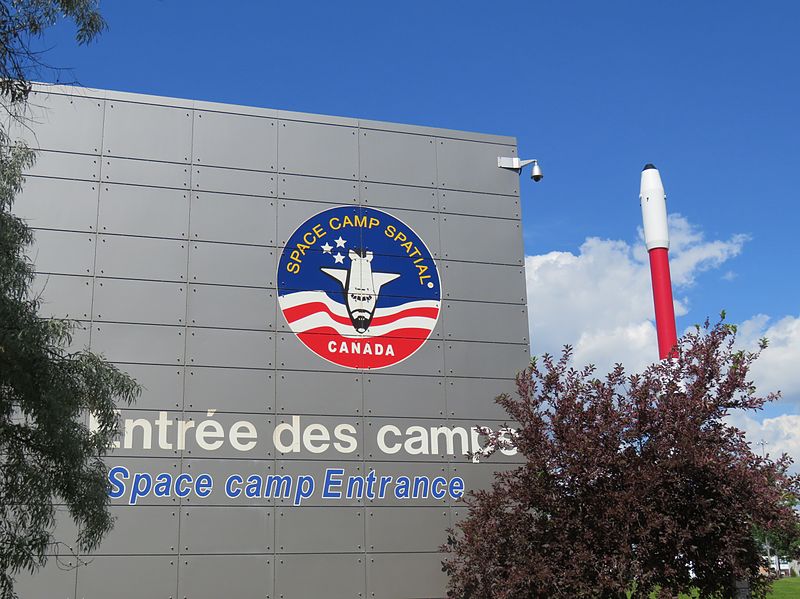Collapsing International Camp Licensing Agreements Diminishing Space Camp Brand

Recently, a Sprocketeers reader noticed that Space Camp Canada’s website was no longer up and running. I reached out the officials at the Laval Cosmodome and the U.S. Space & Rocket Center (USSRC). Both confirmed that the Space Camp Canada licensing agreement had come to an end. Space Camp Canada, located in Laval, Quebec, (just outside of Montreal), was opened in 1994 and helped spread the adventure and excitement of Space Camp to those that weren’t able to make the trip across the border. Canada wasn’t the only international licensee in the heyday of Space Camp licensing, there were other active locations in Japan, Turkey, and Belgium. Needless to say, it was a licensing boom that not only helped spread the word of Space Camp but also resulted in additional revenue for the USSRC that allowed them to expand and operate Space Camp locations domestically in Alabama, Florida and California.
Over the years, the number of officially licensed camps have decreased with the closure of Space Camp Japan, Space Camp Euro (Belgium) and now Space Camp Canada. The only current licensee is Space Camp Turkey. In recent years the USSRC has worked hard to make up for those closed camps by working deals in other countries. However, those deals have consistently encountered issue after issue that has led to negotiated Space Camp projects in India and China coming to end before they even started. Currently, the USSRC is working on a second attempt of opening a Space Camp South Korea location but as reported in a recent Alabama Space Science Exhibit Commission meeting, the current licensee has yet to make their required payment to continue the licensing process. On top of that, the USSRC is currently in a five-year long federal lawsuit with the first party to attempt to establish a camp in South Korea
What happens when a Space Camp closes
Just like with any franchising deal there are rules of operation and Space Camp licensing is no different. However, when a local franchised restaurant goes out of business, there are set rules for how the equipment and facilities must be disposed of to protect the brand. That doesn’t seem to be the case for these legacy Space Camp locations.
When Space Camp Euro operations were “ceased” a new program called Astronaut Camps quickly opened up and started advertising the very same experiences that were available with Space Camp. The same situation appears to be happening in Canada with the Cosmodrome website advertising NASA-like training simulators and space missions under the title of Space Camps without the use of Space Camp Canada logos. While these operations continue much
Huntsville, this could be a problem
In the 1999 and
This type of walking then running approach is exactly the same thing that the former Space Camp locations will be faced with, as they no longer have access to curriculum and simulator upgrades from the USSRC. It will be interesting to see how these programs evolve in the long run at the same time that Space Camp in Huntsville is looking to update their facilities and training programs with old partners looking to build a name for themselves in a space-friendly culture.
Updated 12MAR2019 to remove failed instagram link and added Youtube video




